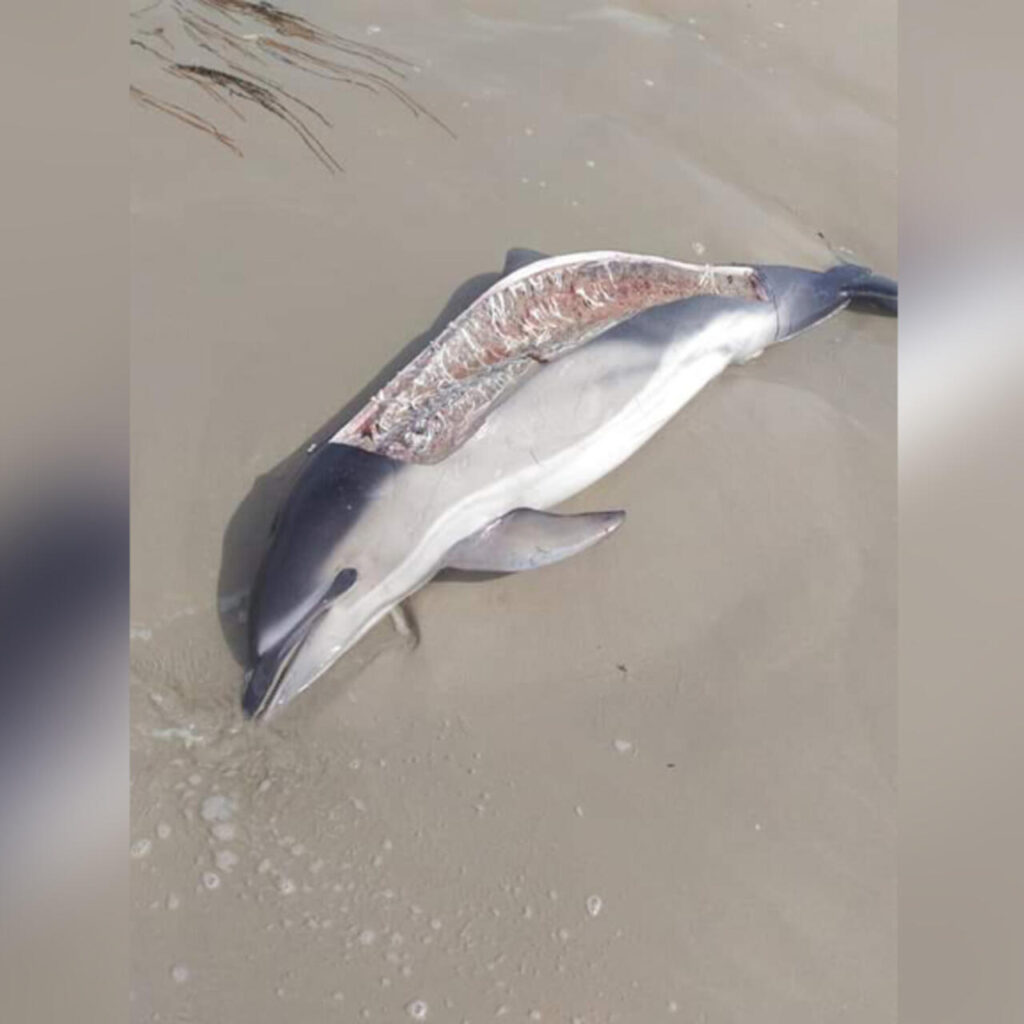
Dolphins have always captured our collective imagination due to their playful antics and intelligent behaviors, yet in certain parts of the world their presence can cause great controversy over consumption practices such as eating their meat.
This blog post delves deep into the question: is dolphin meat edible? We will examine its nutritional values, health implications, culinary methods and cultural considerations associated with eating dolphin meat.
Table of Contents
Is Dolphin Meat Edible?
Technically, dolphin meat can be considered edible; historically in certain countries it was consumed. However, its consumption remains highly controversial and, in many places, illegal due to conservation concerns and possible health risks.
Dolphins are intelligent and social animals whose populations can become severely depleted through overfishing.
Furthermore, dolphin meat may contain high concentrations of mercury and other toxic pollutants which makes it unsafe for human consumption; many countries therefore prohibit the hunting and consumption of dolphins for this reason alone.
However, the conclusion the short answer of is dolphin meat edible? – yes. Although dolphin meat may technically be edible, ethical, conservational and health considerations do not advise its consumption for human consumption.
Is Dolphin Meat Bad For Health?
Dolphin meat may pose serious threats to human health. It contains high concentrations of mercury – an environmental neurotoxin linked to brain damage and neurological issues in people.
It leads to brain deterioration as well as neurological effects among pregnant women and young children who consume too many mercury-laden products.
Dolphin meat may contain contaminants other than mercury that pose significant health threats such as PCBs and cadmium; such contaminants have been linked with cancer, reproductive issues and developmental delays among children.
As well as health risks, eating dolphin meat also raises ethical considerations. Dolphins are intelligent social animals; therefore many believe it to be unethical to kill and consume their flesh.
Overall, it is best to refrain from eating dolphin meat. Many other seafood options exist which are safer and healthier alternatives.

Is It Nutritious Eating Dolphin Meat?
Dolphin meat contains proteins, omega-3 fatty acids, vitamins and minerals such as iron, zinc and selenium in its most natural state. However, mercury acts as neurotoxin and may lead to brain damage and neurological issues in humans.
Pregnant women and young children are especially at risk from mercury poisoning from eating dolphin meat, with increased cancer risks as well as reproductive and developmental delays for pregnant women, and developmental delays for children as a result of exposure.
Alongside health risks, eating dolphin meat also poses ethical concerns. Dolphins are intelligent social animals who deserve our respect; many feel it would be wrong to kill and consume these marine mammals for food.
How To Cook Dolphin Meat?
WARNING: Dolphin meat is high in mercury and other pollutants, and is not recommended for human consumption.
Ingredients:
- 1 pound dolphin fillets
- 1/4 cup olive oil
- 1/4 cup lemon juice
- 1/4 teaspoon salt
- 1/4 teaspoon black pepper
Instructions:
- Preheat oven to 400 degrees F (200 degrees C).
- Place dolphin fillets in a baking dish.
- Drizzle with olive oil and lemon juice.
- Season with salt and pepper.
- Bake for 10-12 minutes, or until fish is cooked through.
- Serve immediately.
Tips:
- You can also cook dolphin meat on the grill or in a skillet.
- If you are grilling dolphin meat, be sure to brush it with oil to prevent it from sticking to the grill grates.
- If you are cooking dolphin meat in a skillet, use a medium-high heat and cook for 3-4 minutes per side, or until fish is cooked through.
- Dolphin meat can be served with a variety of sides, such as rice, potatoes, or vegetables.
See Also: Is Mahi-Mahi A Dolphin? Why Is Mahi-Mahi Called A Dolphin?

Where Do They Eat Dolphin Meat?
Dolphin meat is consumed in a small number of countries worldwide, including:
- Japan
- Peru
- Taiwan
- Faroe Islands
- Solomon Islands
- Kiribati
- Vanuatu
- Tuvalu
- Nauru
- Palau
- Marshall Islands
- Micronesia
However, consumption of dolphin meat has decreased substantially across these nations in recent years; Japan being one such example; both demand and distribution companies for dolphin meat have experienced decreases since several have closed down over this time.
Some countries, including the US and most of Europe, prohibit the consumption of dolphin meat.
See Also: What Does Dolphin Meat Looks Like and Should We Eat It?
Can You Eat Regular Dolphin?
Yes, you can eat regular dolphin. However, it should not be done due to ethical, conservational, and health considerations. In certain areas it may even be prohibited due to ethical concerns as well.
Ethical Concerns: Dolphins are intelligent and social animals who may pose significant ethical concerns for some consumers who find it morally troubling to kill and consume an animal with such advanced cognitive capabilities.
Conservation Concerns: Dolphins, especially certain species, are at great risk due to overfishing, pollution and habitat destruction. Consuming dolphins contributes to their decline, with devastating ecological ramifications as their numbers decrease further.
Health Issues: Dolphin meat may contain high concentrations of mercury and other pollutants that could pose significant threats to pregnant women, nursing mothers and young children – particularly during pregnancies, breastfeeding and early development stages.
Exposure can result in adverse health reactions including severe birth defects. Consumption of dolphin meat should therefore be strongly discouraged.
What Does Dolphin Taste Like?
Dolphin meat has been described as tasting similar to beef liver with fishy undertones and having gamey but sweet notes, though some experts have noticed metallic aftertaste notes when sampling dolphin meat for the first time.
However, the flavor of dolphin meat varies significantly depending on its method of preparation and cooking. Grilling or smoking could bring out its fullest flavors while baking or poaching may produce less intensely-flavored results.

Is Dolphin Meat Halal?
Islamic scholars continue to debate whether dolphin meat consumption is permissible due to their intelligence. Others argue it should be permitted provided it meets Islamic guidelines of slaughtering and eating an animal from that species is done according to Islamic rules.
Why Is Dolphin Meat Black?
Dolphin meat is dark in color due to the abundance of myoglobin protein that stores oxygen within their muscles, essential as marine mammals must hold their breath underwater for long periods when diving. Myoglobin acts like a storage site.
Myoglobin levels within their muscles allow them to store additional oxygen, thus prolonging submersion for a greater length of time.
Frequently Asked Questions (FAQs)
Is It Legal To Eat Dolphin Meat?
Consumption of dolphin meat can vary by country; in many instances it has been banned due to conservation efforts and mercury pollution concerns.
How Can Mercury In Dolphin Meat Affect Human Health?
Mercury poisoning has the potential to create serious neurological damage for developing babies and children alike, including developmental delays, learning disabilities and health concerns that require medical intervention.
Is Dolphin Meat Edible Or Non Edible?
Dolphin meat is edible, but it is not recommended for human consumption. Dolphin meat is high in mercury, which is a neurotoxin that can cause brain damage and neurological problems in humans.
Conclusion: Is Dolphin Meat Edible?
However, to wrap up is dolphin meat edible? We can say although dolphin meat may technically be edible, its consumption should be strongly discouraged given the serious health risks posed by mercury contamination and ethical and conservation concerns surrounding its consumption.
Furthermore, ethical considerations make it crucial to protect these intelligent marine mammals rather than consume them as food sources.
Respect and preservation are vital in order to create a sustainable future for marine life and humans alike.

Mr. Das, a certified pharmaceutical scientist, holds a Bachelor of Science in Pharmaceutical Sciences and passionately contributes to dolphin conservation as a member of the committee in Bangladesh.


